Middle East
Israel shuts down UNRWA-affiliated schools in occupied East Jerusalem | Israel-Palestine conflict News
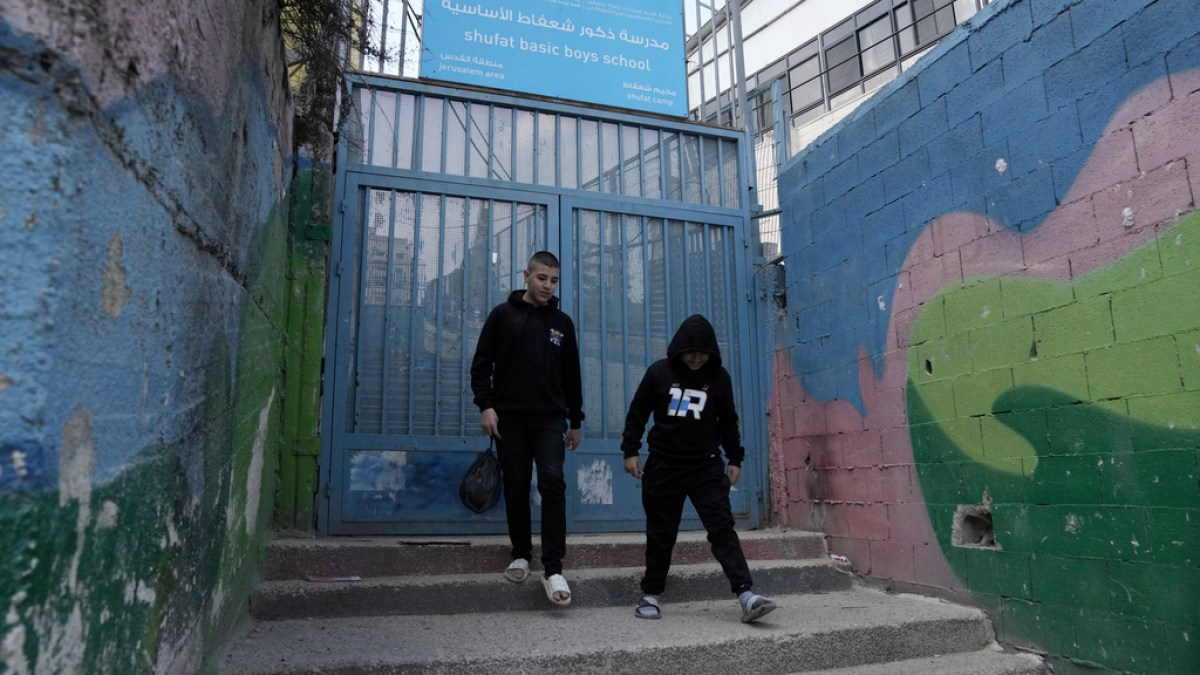
Critics say hundreds of children are likely to be moved to schools teaching Israeli curriculum, which could ‘erase’ Palestinian identity.
Israel has shut down six schools run by the United Nations agency for Palestinian refugees after moving to banish the organisation from the occupied West Bank and East Jerusalem early this year.
The UN Relief and Works Agency for Palestinian Refugees (UNRWA) said in a statement that Israeli police forcibly entered schools in the East Jerusalem neighbourhoods of Shuafat, Silwan, Sur Baher and Wadi al-Joz on Tuesday.
Officials from the Israeli Ministry of Education were also on hand. They issued orders to close the schools within 30 days.
“If we are forced to close, the consequences will be dire as the children will be deprived of their basic right to education, which will exacerbate their suffering and negatively affect their future,” said Abir Ismail, director of UNRWA’s information office.
UNRWA chief Philippe Lazzarini said in a statement that Israel’s orders were a “violation” of international law and the rules granting the UN operations protection from local jurisdictions.
“Some 800 boys and girls are directly impacted by these closure orders and are likely to miss finishing their school year,” Lazzarini wrote.
This morning, Israeli officials from the Jerusalem Municipality, accompanied by Israeli Security Forces, forcibly entered six @UNRWA schools in East Jerusalem. They gave closure orders for the schools effective in 30 days.
UNRWA schools in occupied East Jerusalem are…
— Philippe Lazzarini (@UNLazzarini) April 8, 2025
Al Jazeera correspondent Nour Odeh said the closure of the UNRWA schools is “extremely problematic” because the children would likely end up at Israeli institutions run by the Jerusalem Municipality.
She explained that the children admitted to Israeli schools would no longer be taught under the Palestinian curriculum.
“It is an Israeli-run curriculum that Palestinians say ignores and erases Palestinian identity,” Odeh said from Jordan’s capital, Amman. Al Jazeera is reporting from Jordan because it has been banned from Israel and the West Bank.
UNRWA currently provides humanitarian assistance to about 750,000 Palestinians.
Ismail said the aid agency maintained its “firm commitment to continue providing educational services to Palestine refugees in East Jerusalem, including the current academic year”.
However, Israel has accused UNRWA employees of involvement in the Hamas-led attacks on southern Israel on October 7, 2023, a charge vehemently denied by the UN.
Last year, in the aftermath of those allegations, the Israeli Knesset passed two bills prohibiting UNRWA from conducting activities within Israel’s borders and making it illegal for Israeli officials to have any contact with UNRWA. Those measures have been in effect since January.
Odeh said Israel started implementing its ban by refusing to engage with UNRWA on the subject of aid to Gaza. But now, she explained, the country has moved on to targeting the agency’s operations and headquarters in occupied East Jerusalem.
That move, she said, is likely to have a “crippling effect” on UNRWA’s operations “in 19 other refugee camps” across the occupied West Bank, affecting “Palestinians who rely on the agency, not just for education but also for health services, for psychosocial support”.
Odeh added that Israel has accelerated its implementation of the UNRWA ban since the start of its “Iron Wall” military incursion in the West Bank in January.
The operation was launched just two days after a ceasefire took effect in Gaza.
It has involved the Israeli military bombing and bulldozing communities across the West Bank, razing entire residential areas in what critics fear is a bid to move towards full annexation.
More than 40,000 Palestinians have been uprooted from the Jenin and Tulkarem refugee camps as part of the military campaign.
UNRWA was established by the UN General Assembly in 1949 to provide assistance to Palestinians displaced from their land during the creation of Israel in 1948, an event known to Palestinians as the Nakba, or “catastrophe”.
Middle East
Palestinian photographer Samar Abu Elouf wins world’s top photo prize | Gaza News
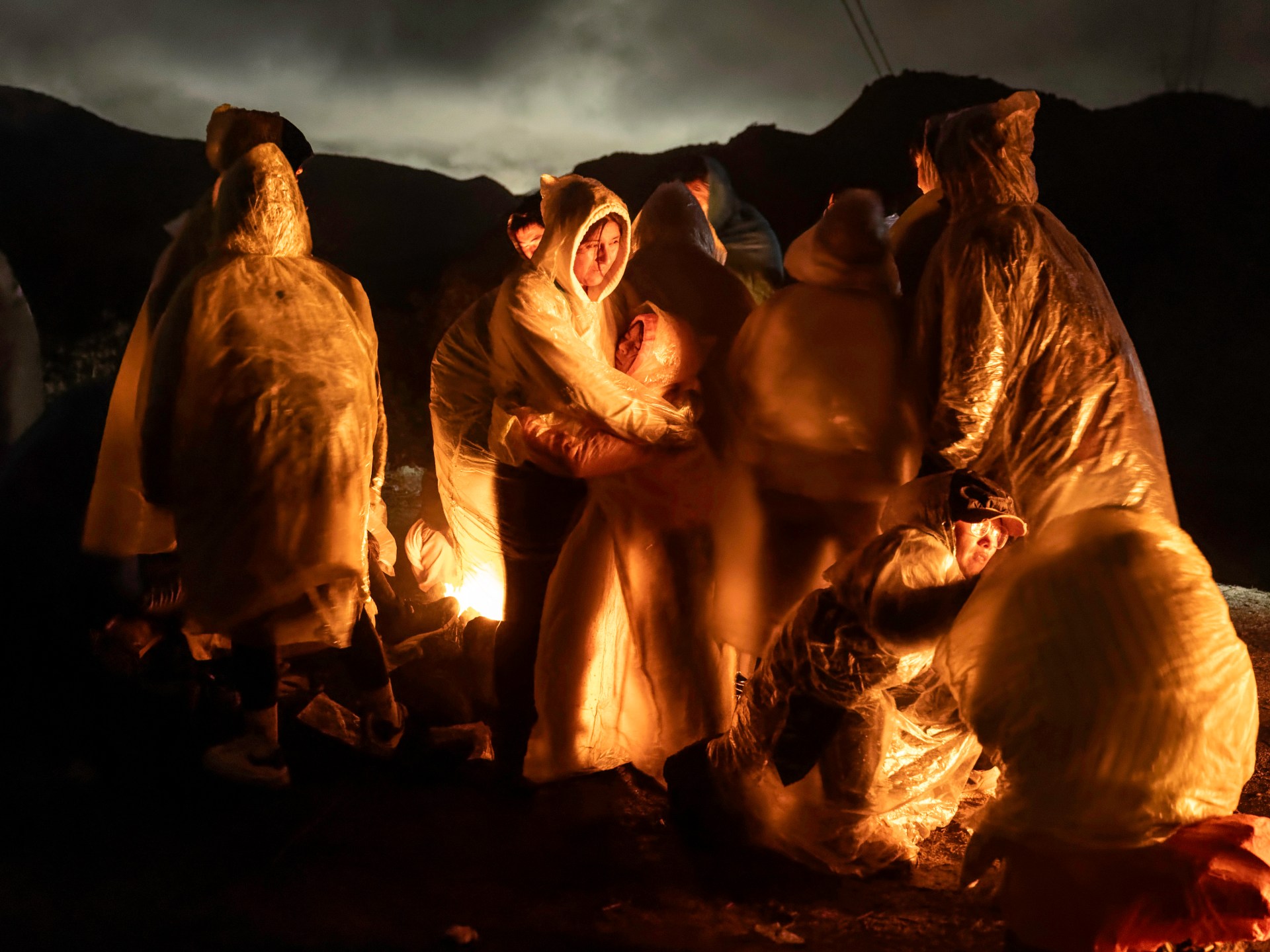
The 2025 World Press Photo of the Year has been awarded to Samar Abu Elouf, a Doha-based Palestinian photographer, for her poignant image of Mahmoud Ajjour, a young boy severely injured while fleeing an Israeli attack in Gaza.
Captured for The New York Times newspaper, the photograph powerfully conveys Mahmoud’s suffering and resilience after an explosion in March last year left one of his arms severed and the other mutilated.
Since her evacuation from Gaza in December 2023, Abu Elouf has been documenting the experiences of individuals like Mahmoud, who sought medical treatment abroad.
Joumana El Zein Khoury, executive director of World Press Photo, an Amsterdam-based organisation, described the image as “quiet” yet deeply impactful, capturing the intimate suffering of one child while also speaking to the wider repercussions of global conflict.
The winner and two finalists were announced on Thursday, during the press opening of the World Press Photo Exhibition in Amsterdam. The exhibition will travel to more than 60 locations worldwide, showcasing some of the year’s most compelling and visually striking stories.
For 70 years, the World Press Photo Contest has honoured the best in photojournalism. This year’s contest received at least 59,000 submissions from photographers in 141 countries, featuring powerful stories of struggle, defiance, warmth and courage.
Here are some of the top images of this year:
Middle East
Portrait of amputee Palestinian boy from Gaza wins World Press Photo award | Israel-Palestine conflict News
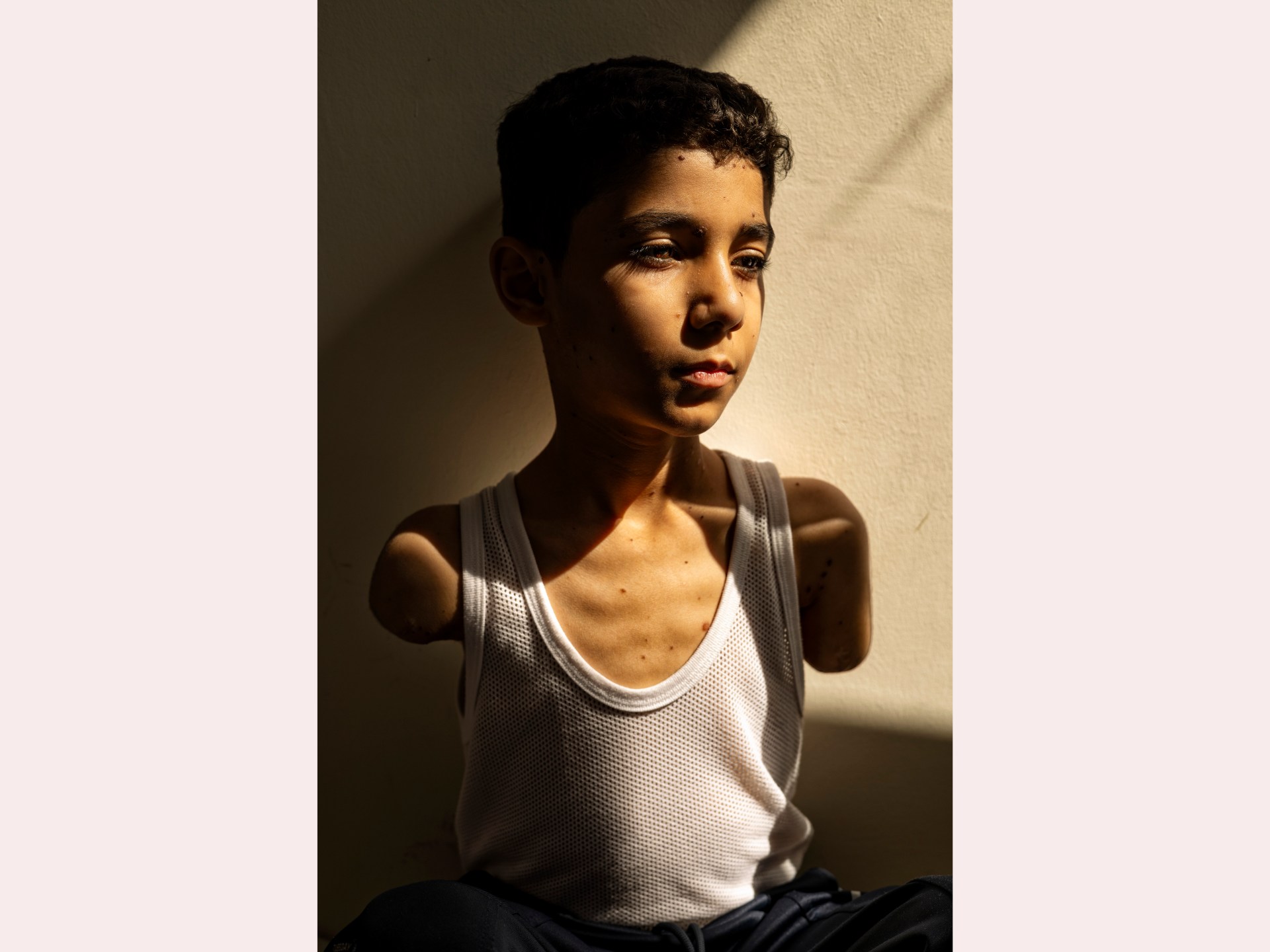
The winning photo depicts nine-year-old Mahmoud Ajjour, whose arms were severed in an Israeli attack in Gaza last year.
The solemn portrait of a nine-year-old Palestinian boy, whose arms were severed and mutilated during an Israeli attack on Gaza City, has won the 2025 World Press Photo of the Year award.
The picture, given the accolade on Thursday, was taken by Samar Abu Elouf for The New York Times newspaper, and depicts Mahmoud Ajjour.
“One of the most difficult things Mahmoud’s mother explained to me was how when Mahmoud first came to the realisation that his arms were amputated, the first sentence he said to her was, ‘How will I be able to hug you’?” said Abu Elouf.
Ajjour was evacuated to Doha, Qatar, following the Israeli explosion in March last year, an attack in the continuing war that has killed at least 51,025 Palestinians, wounded about 116,432 others and reduced much of the enclave to rubble.
The photographer is also from Gaza and was herself evacuated in December 2023. She now takes photos of badly wounded Palestinians based in Doha.
“This is a quiet photo that speaks loudly. It tells the story of one boy, but also of a wider war that will have an impact for generations,” said Joumana El Zein Khoury, World Press Photo’s executive director.
The jury praised the photo’s “strong composition and attention to light” and its thought-provoking subject matter, especially questions raised over Mahmoud’s future.
It also lauded how the photo depicts “the dehumanisation of a region, and about the relentless targeting of journalists in Gaza alongside the continued denial of access to international reporters seeking to expose the realities of this war”.
The boy is now learning to play games on his phone, write, and open doors with his feet, but still needs special assistance for most daily activities, such as eating and dressing, the jury said.
“Mahmoud’s dream is simple: he wants to get prosthetics and live his life as any other child,” said the World Press Photo organisers in a statement.
The statement cited the United Nations Works and Relief Agency (UNWRA)’s recent estimation that by December last year, Gaza had more child amputees per capita than anywhere else in the world.
“Children are disproportionately impacted by the war,” the jury stated.
Runner-up prize
The jury also selected two photos for the runner-up prize.
The first, entitled “Droughts in the Amazon” by Musuk Nolte for Panos Pictures and the Bertha Foundation, shows a man on a dried-up river bed in the Amazon carrying supplies to a village once accessible by boat.
The second, “Night Crossing” by John Moore shooting for Getty Images, depicts Chinese migrants huddling near a fire during a cold rain after crossing the US-Mexico border.

The jury sifted through 59,320 photographs from 3,778 photojournalists to select 42 prize-winning shots from around the world.
Nairobi-based Luis Tato won in the “Stories” category for the Africa region for a selection of photos depicting Kenya’s youth uprising.
Jerome Brouillet won in the “Singles” category Asia Pacific and Oceania for his iconic picture of surfer Gabriel Medina seemingly floating above the waves.
Clarens Siffroy won in the “Stories” category North and Central America for his coverage of the gang crisis in Haiti.
Finally, Anselmo Cunha won in the “Singles” category for South America for his photo of a Boeing 727-200 stranded at Salgado Filho International Airport in Brazil.
Middle East
Hamas accuses Israel of weaponising aid as Gaza’s hunger crisis worsens | Gaza News
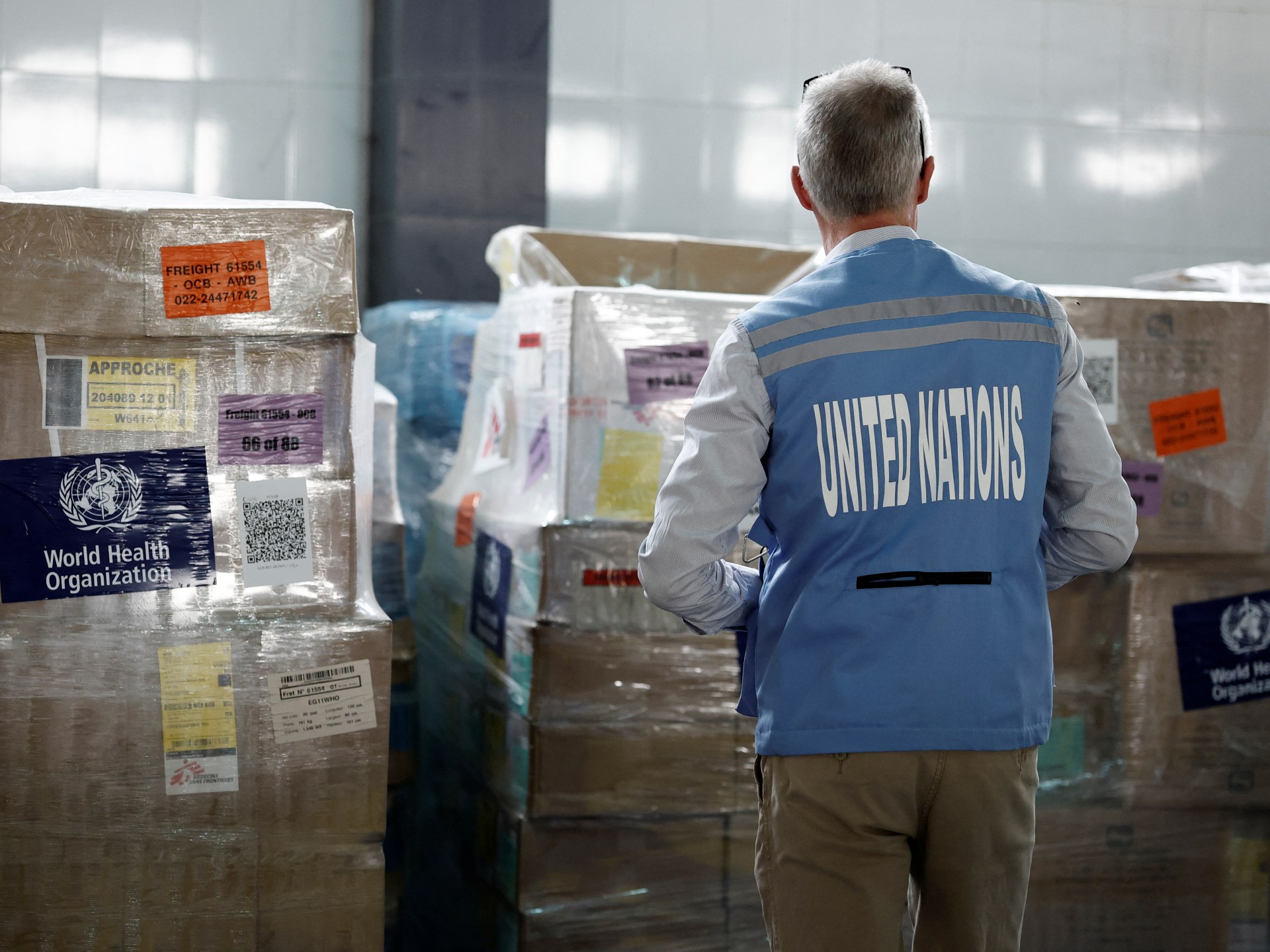
Israel’s defence minister says blockade is a ‘pressure lever’ against Hamas and there are no plans to ease it.
Hamas has accused Israel of openly using starvation as a weapon of war, a day after Israel’s defence minister pledged to maintain a blockade on aid entering Gaza.
Aid deliveries into the Palestinian territory have been halted since March 2, weeks before Israel broke a temporary ceasefire by restarting aerial bombardment on March 18 and later relaunched its ground assault.
Speaking on Wednesday, Israeli Defense Minister Israel Katz described the blockade as a “main pressure lever” against Hamas, saying there were no plans to ease restrictions – despite UN warnings that malnutrition is rapidly worsening in Gaza.
In response, Hamas condemned Katz’s remarks as “a public admission of committing a war crime”.
Israel is “depriving innocent civilians of basic necessities of life, including food, medicine, water and fuel, for the seventh consecutive week”, the group said in a statement posted to Telegram on Thursday.
“We renew our calls for the international community to take action to stop the starvation and blockade imposed on the Gaza Strip,” it added.
In March 2024, the United Nations’ International Court of Justice ruled Israel must ensure the delivery of essential aid – including food, water, fuel and medical supplies – into Gaza. Israel has repeatedly defied the binding order, claiming that Hamas misuses aid.
‘Food consumption sharply deteriorating’
According to Israel’s Kan broadcaster, Israeli defence figures estimate Gaza’s remaining food supplies could be depleted within a month.
The Israeli army is brainstorming ways to deliver aid “without it reaching Hamas”, including proposals for “stationary aid centres” managed by international organisations in zones secured by Israeli forces, Kan reported.
Al Jazeera’s Nour Odeh, reporting from Amman, said sources in UN agencies have told her that Israel wants to pre-approve who receives aid – essentially vetting beneficiaries in advance.
“Already we have heard from the United Nations that this is something that cannot be acceptable,” she said.
The reports come as the UN escalates warnings about deepening hunger in Gaza.
The UN’s Office for the Coordination of Humanitarian Affairs (OCHA) reported that 3,696 children were newly admitted with acute malnutrition in March – an 80 percent increase from February.
“Food consumption in Gaza has sharply deteriorated due to the blockade on the entry of humanitarian aid and other critical supplies now in its seventh week,” OCHA said.
Odeh added: “This is the official Israeli policy: No food, no water, no aid for Gaza, while Israel takes more and more of the territory’s land.”

-

 Education1 day ago
Education1 day agoTrump administration revokes humanitarian parole of Spanish teacher
-

 Conflict Zones3 hours ago
Conflict Zones3 hours agoHaiti in ‘free fall’ as violence escalates, rights group warns | Armed Groups News
-

 Europe1 day ago
Europe1 day agoPolice arrest couple for breeding and selling exotic cats in Spain
-
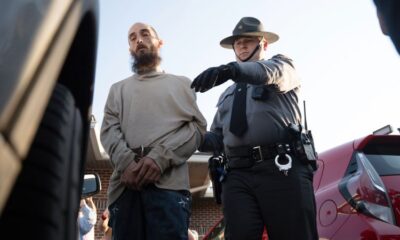
 Europe1 day ago
Europe1 day agoCody Balmer, the suspect in arson at Pennsylvania governor’s home targeted the governor for his views on war in Gaza, warrant says
-

 Sports1 day ago
Sports1 day agoNew Orleans Saints win lawsuit over fleur-de-lis trademark filed by ‘direct descendant of the Kings of France’
-

 Education1 day ago
Education1 day agoReggaeton is sending China wild — and it’s teaching college students Spanish
-
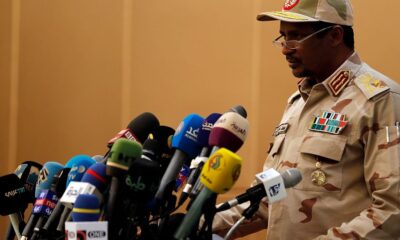
 Africa1 day ago
Africa1 day agoSudan: Rapid Support Forces leader announces rival government
-
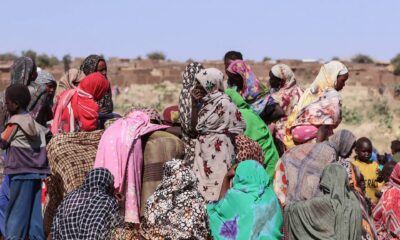
 Conflict Zones1 day ago
Conflict Zones1 day agoAfter two years of war in Sudan, the world can no longer plead ignorance | Conflict



